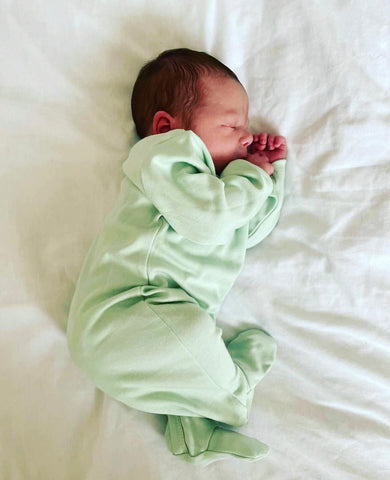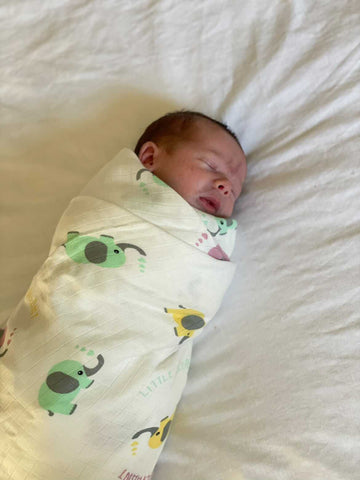Why Is Sleeping Important for Babies?
Sleeping is crucial for babies as it plays a vital role in their growth, development, and overall well-being. Adequate sleep supports healthy brain development, strengthens the immune system, and promotes physical and emotional health.
During sleep, babies consolidate their learning and memory, process emotions, and recharge their bodies for optimal functioning.
Additionally, quality sleep is essential for regulating mood, behaviour, and attention span in babies, which can impact their overall development and behaviour. Creating a safe and conducive sleep environment, establishing consistent sleep routines, and ensuring that babies get the recommended amount of sleep for their age are essential factors in promoting healthy sleep habits and supporting their overall growth and development.
In this blog, we'll provide a comprehensive guide to baby sleep safety, offering essential tips and guidelines to promote a safe and peaceful sleep environment for your little one.
1) Create a Safe Sleep Environment
- Place your baby on their back to sleep, on a firm mattress with a fitted sheet.
- Keep the crib or cot free of blankets, pillows, toys, and other soft bedding that could pose suffocation hazards.
- Avoid overheating by dressing your baby in lightweight clothing and keeping the room temperature comfortable (around 68-72°F or 20-22°C)
- Our Bebekish Clothing range maintains your baby's body temperature as it is made from 70% bamboo and 30% organic cotton. Bamboo has breathability and soft comfort into it, keeps your baby comfortable and safe all night.
2) Use a Safe Sleep Space
- Provide a separate sleep surface for your baby, such as a crib, bassinet, or play yard, rather than co-sleeping in the same bed.
- Ensure that the sleep space meets safety standards and is free of hazards such as gaps, loose hardware, or protruding parts.
3) Practice Safe Swaddling Techniques
- If you choose to swaddle your baby, ensure that it is done safely. Use a lightweight, breathable swaddle blanket and wrap it snugly around your baby's torso, leaving their hips loose and legs able to move freely.
- Stop swaddling once your baby shows signs of rolling over or breaking free from the swaddle.
- Bebekish Muslin Swaddles are made from 100% bamboo which are lightweight, breathable and super soft.
4) Be Mindful of Sleep Position
- Always place your baby on their back to sleep, both for naps and nighttime sleep, until they are able to roll over on their own.
- If your baby rolls over onto their stomach during sleep, you do not need to reposition them onto their back.
5) Monitor Sleep Environment
- Regularly check the crib or bassinet for any hazards or changes in the sleep environment, such as loose bedding or objects that could pose a suffocation risk.
- Ensure that your baby's sleep space is free of cords, wires, and other potential strangulation hazards.
6) Educate Caregivers
- Inform babysitters, family members, and childcare providers about safe sleep practices and guidelines to ensure consistency in your baby's sleep routine.
- Provide clear instructions on how to create a safe sleep environment and emphasise the importance of following safe sleep recommendations.












